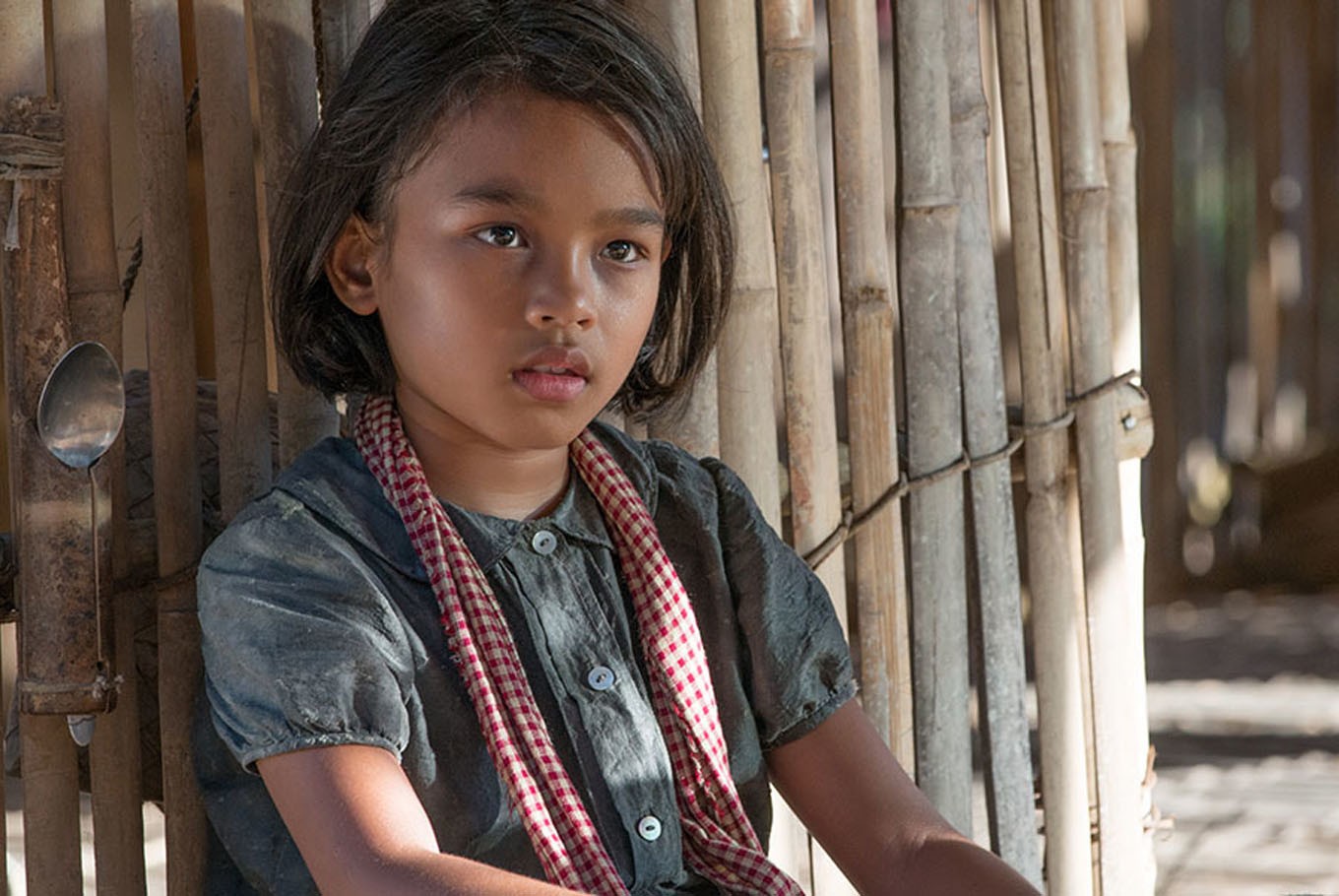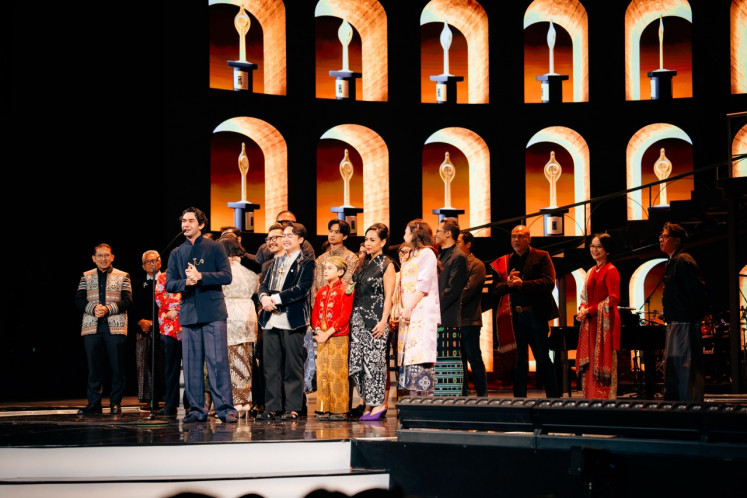Popular Reads
Top Results
Can't find what you're looking for?
View all search resultsPopular Reads
Top Results
Can't find what you're looking for?
View all search resultsAngelina Jolie's Cambodian genocide film deserves to be watched
The story: From 1975 to 1979, an estimated one-quarter of Cambodia's population of seven million is dead because of the genocidal policy of the ruling Khmer Rouge.
Change text size
Gift Premium Articles
to Anyone
T
he story: From 1975 to 1979, an estimated one-quarter of Cambodia's population of seven million is dead because of the genocidal policy of the ruling Khmer Rouge. This account of the period is taken from Luong Ung's 2000 biography, which describes her life, first as a child of middle-class parents in Phnom Penh, then as a prisoner in resettlement camp and later, as a child soldier sent to fight the invading Vietnamese.
We have seen Cambodian genocide films.
Most famously, there is the Oscar-winning The Killing Fields (1984), a film that delivers a gut-punch of emotion.
But that kind of power can backfire: Because genocide films are so tough to watch, the viewer often feels that seeing one of these is enough and there is no moral obligation to sit through another depressing lesson in human depravity.
This would be a shame because this film, despite its flaws, deserves to be watched. It is an important film because a big-name Western film-maker - in this case, co-writer and director Angelina Jolie - has used her clout to get this made and put on a global platform.
Read also: Angelina Jolie in Cambodia for premiere of her new film
What is unique about this work is that it takes the point of view of a Cambodian, who is also a child.
The Killing Fields is relatable to a Western audience because Dith Pran (Haing S. Ngor) served as assistant to American journalist Schanberg (Sam Waterston).
Luong (Sreymoch Sareum) and her family, in Jolie's hands, are well-placed to represent the horrors millions suffered during the period of national trauma.
Unlike Killing Fields, which was a tense escape adventure, Jolie prefers to cast this as a low-key survival story.
And this is where its weakness lies. Luong's Khmer Rouge captors are never given any depth. Beyond the shouted slogans and gun-pointing, there is little that explains their sociopathy.
Also, Luong's stoicism, while admirable, feels alienating. More insight into her feelings at the time would have been welcome.
This article appeared on The Straits Times newspaper website, which is a member of Asia News Network and a media partner of The Jakarta Post











